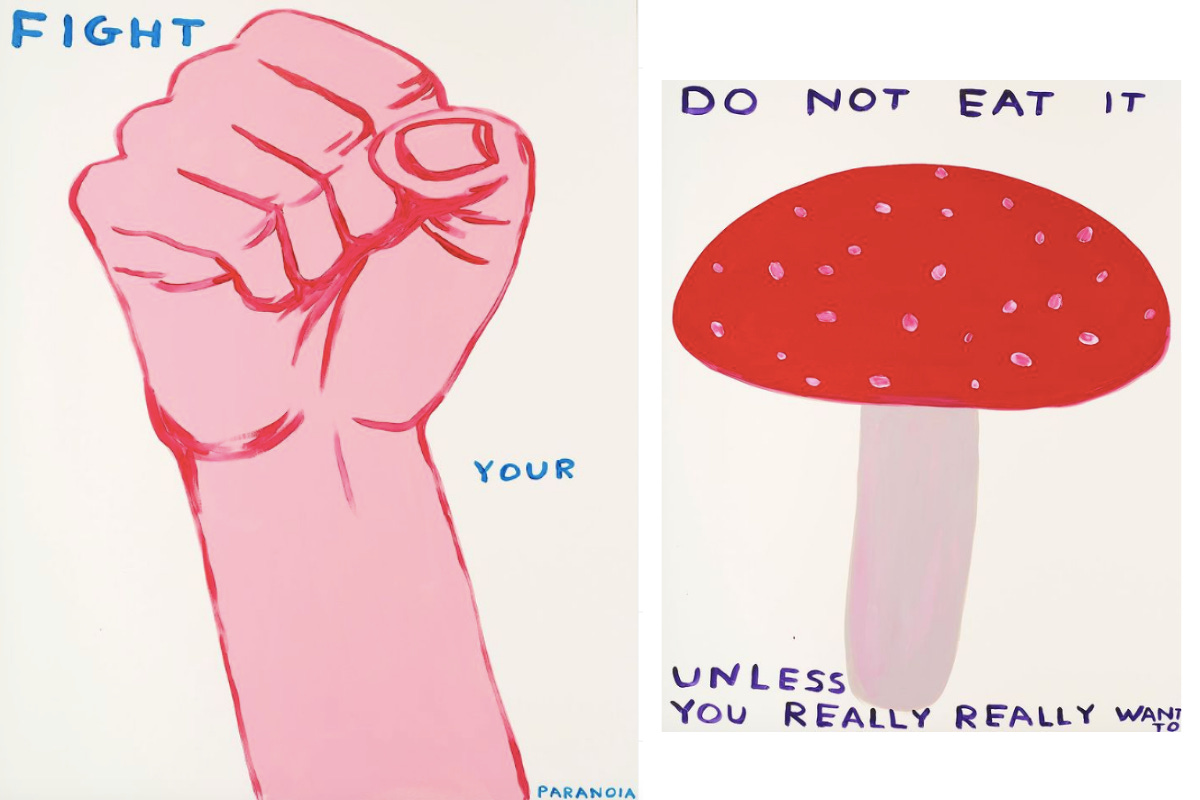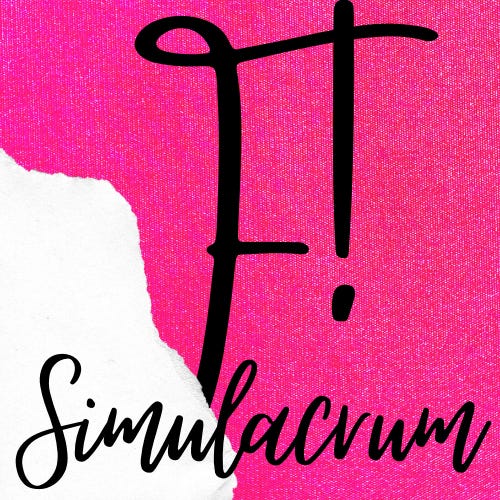Friday watching
Today is the 15th of April, 2022. Here’s a list of YouTube videos on the subject of the history of the Russia-Ukrainian conflict, and yesterday’s visuals.

I still try to keep this feed as a kind of diary. That’s the reason why I don’t prepare the texts upfront usually. I write following the same rule I use on Instagram, inspiration comes from the day, from the mood, from events, thoughts. Today I thought of posting another literature recommendations list, but after preparing the books and settling my office in bed (I caught a cold) I started watching YouTube instead of writing. So here we are. I write a list of lectures and interviews that spread light on the details and the nature of the Ukrainian crisis.
I’m not going to share the Russian official view on that, and I won’t share links on the “special operation”. I, as well as most of the people in Russia and all over the world, not only didn’t expect the letter to happen, I had no solid vision of the problem. I had questions, and the most important one was “Why does Russia do it?”.
I don’t believe in the imperial ambitions of Putin, I’m sorry, I just don’t. His vision of strong Russia, yes, but it has nothing to do with the USSR past or with Imperial Russia as well. The fall of the first made him a President and he did nothing during his rule that would make me feel we are moving backward until now. And the concept of cherishing the Imperial past is the novella in the official propaganda that for me looks like made up during 2020-2021 for the Ukrainian problem solution he and his councils worked on. For 30 years we had no official ideology, we had quite a clear vision of our aims in different areas, including international relationships, but no big national idea other than we continue to “help people”. As general as it sounds. COVID, terrorists, climate catastrophes, humanitarian crisises. I have many questions, including how Putin could fuck up 30 years of his own work results by dragging Russia into the… “special operation”.
As far as I couldn't ask him directly, I tried to find answers online - reading, watching, listening. Today was another day like that. I try to educate myself about my own history, though I know enough about the history of the USSR fall as a state and the inner reasons, and I know something about the Ukrainian problems with corruption, the sad state of their industry and social institutions, and reasons they are not in the EU. I obviously didn’t know enough. I didn’t know why the West was so “obsessed with Russia”, quoting the Indian Minister of External Affairs Dr. Subrahmanyam Jaishankar.
Here’re the links on the lectures I found very interesting and explaining much more than the numerous opinions we are bombed by in the media right now. I was looking for information and facts not in the rythorics.
John Mearsheimer, the R. Wendell Harrison Distinguished Service Professor in Political Science and Co-director of the Program on International Security Policy at the University of Chicago:
Maybe it’s enough to listen to his interview with CNN to understand his point of view. But I was pretty much interested in the details and the depth, so here’s his lecture at the University of Chicago “Why is Ukraine the West's Fault?”
Jack Matlock, former US Ambassador to the Soviet Union, delivers the 2015 Fulbright Lecture, entitled The Ukrainian Crisis: Reflections on Power in Today's World.
The most interesting part is the question part. It’s about the USSR and the end of it how American part saw it on the highest level, about the diplomacy and its language, about the leaders and particularly Russian leaders psychology (there’s a difference from others, I guess), about the neo-nazi in Ukraine and image of Putin as a version of Hitler and Russian anexion of Crimea as new Sudats anexion for Germany.
I personally loved Putin's quote that makes a lot of sense to me: “Whoever does not miss the Soviet Union has no heart, whoever wants it back has no brains”.
Stephen F. Cohen: The Ukrainian Crisis - It's not All Putin's Fault (a speech at The Commonwealth Club in 2015)
“The consensus view in Washington and in the U.S. mainstream media is that the Ukrainian crisis, which some have called the worst international crisis of our time, is due solely to Russian aggression under President Vladimir Putin”, - that’s the quote from the description of the clip, I can’t agree more on it.
Stephen F. Cohen explains that U.S. policy since the 1990s is largely responsible for the crisis. But I wasn’t interested in the part actually, I was more surprised by his views on the Ukraine as a country and Russian connection to the Ukrainians.
And here's a “fresher” (from 2019) conversation between Cohen and Dan Rather. There's a very interesting discussion about the media position and the language of diplomacy and quality of it these days, showing the way how escalation in politics happened, and the Trump campaign and the conspiracy behind it.
Vladimir Pozner: How the United States Created Vladimir Putin
A lecture by one of my favourite Russian TV-journalists at Yale University. The only person whose reputation stayed clean in the USSR and in contemporary Russia unspotted. The person who made the telebridge between USSR and USA audiences before Perestroika, when both countries finally saw each other and learned that they are not so different. I didn’t hear his words before, had no idea that they would be so close to my deepest beliefs. That’s the only Russian speaker I would recommend because I trust it’s the most honest though he very accurately avoided the most painful questions, smooth the angles. He nevertheless stays aside from the propaganda. He prefers to stay silent on something, yes, he sounds a bit apologetic, but if you listen to American speakers his words will be very in the context of the broader views.
Brzezinski: On Europe & Russia at Center for Strategic & International Studies
One of the most strong opponents of the USSR and the author of the philosophy under the international policy of America in that relation speaks on contemporary Russia and Ukraine. And his view on the lost ideology in Russia, and his vision of Putin’s views, lifestyle and aims, oligarchs, and on China.
Henry Kissinger discusses ISIS, Ukraine, and Russia in 2014
Former Secretary of State talks on American policy on international relationships and on the way out of the Ukrainian conflict in 2014.
And his speech at Harvard University
A digest from my feed for April 14th, 2022
6.30am zakharova_kaetano Good morning 🌞 How are you today? #haveagoodday the weather is getting better in Moscow, but I’m about to sink trying to collect all pieces of me. Tonsillitis is getting worse, but Sasha has a museum day at school today, so I’m out no matter what. Art should be served to children or children should be delivered to the art… oh… Here’s #digitalcollage by @welderwings #surrealmood #surrealart#surrealism #morningmood #morninginspiration#goodmorningart #goodmorningpost #beautyofart#contemporaryart #artofcollage
My platforms
Instagram: https://www.instagram.com/zakharova_kaetano
Twitter: https://twitter.com/olga_kaetano
Telegram: https://t.me/f_simulacrum
Tumblr: https://fashionistaru.tumblr.com
If you like F! Simulacrum and want to help make it even better, give me feedback, point out factual errors or typos, or send me news subjects you want to describe. My email: o.zakharova@adlifestudio.ru
Substack says I have exciting news to share with you: You can now read my F! Simulacrum in the new Substack app for iPhone.
The Substack app is currently available for iOS. If you don’t have an Apple device, that sucks (for me:))) you can join the Android waitlist here.





